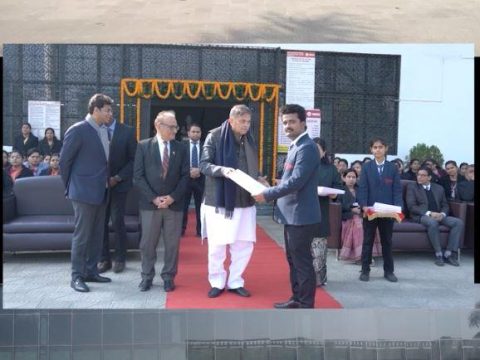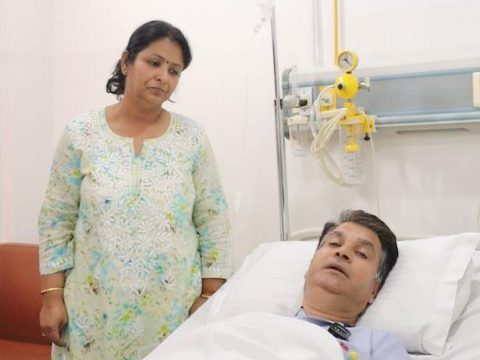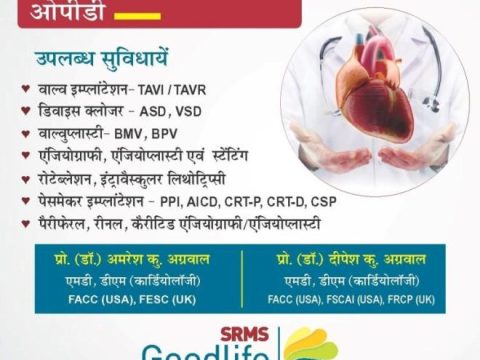EXPERT INSIGHTS FROM SRMS GOODLIFE HOSPITAL: DR MALINI KULSHRESTHA ON RECOGNIZING & MANAGING HEAT HYPERPYREXIA!
SRMS GOODLIFE HOSPITAL’s FREE HEALTH CHECK-UP CAMP DRAWS MASSIVE TURNOUT WITH FREE CONSULTATIONS & INVESTIGATIONS!
April 10, 2024
SHRI RAM MURTI SMARAK (SRMS) TRUST HEALTHCARE INSTITUTIONS WISHES ‘HAPPY NATIONAL DOCTOR’S DAY’ TO ALL DOCTORS & HEALTHCARE HEROES!
July 1, 2024EXPERT INSIGHTS FROM SRMS GOODLIFE HOSPITAL: DR MALINI KULSHRESTHA ON RECOGNIZING & MANAGING HEAT HYPERPYREXIA!
As temperatures soar, the risk of heat-related illnesses becomes a critical health concern. DR MALINI KULSHRESTHA, Senior Consultant & Gold Medalist in Medicine at SRMS GOODLIFE HOSPITAL, Bareilly sheds light on dangers of heat hyperpyrexia & shares vital measures to stay safe during the current sweltering summer months.
UNDERSTANDING HEAT HYPERPYREXIA
Heat hyperpyrexia, an extreme form of hyperthermia, occurs when body’s temperature regulation fails, leading to a dangerously high body temperature, often exceeding 106°F (41.1°C). Dr Kulshrestha emphasizes the urgency of recognizing& treating this condition promptly to prevent severe complications.
SYMPTOMS TO WATCH-OUT FOR
“Heat Hyperpyrexia can manifest suddenly & escalate rapidly”, warns Dr Malini Kulshrestha. Common symptoms include excessive sweating initially; headache&dizziness; confusion or altered mental state; nausea & vomiting; rapid heartbeat & breathing; seizures& loss of consciousness in severe cases.
Speaking about preventive measures, Dr Malini advocates for proactive steps to mitigate the risks associated with extreme heat. She recommends, “One must stay hydrated & drink plenty of fluids. Water & electrolyte solutions are essential to replenish lost fluids & salts. Avoid peak sun hours& plan outdoor activities during cooler parts of the day. Wear lightweight, loose-fitting& light-colored clothing that helps your body stay cool. Create a cool environment—use fans, air conditioning, or cool showers to lower body temperature. Avoid strenuous activities, especially during peak heat times. Most importantly, if you suspect someone has heat hyperpyrexia or heat stroke, move them to a cooler place immediately, and call emergency services right away, as these conditions require rapid medical attention. However, understanding the symptoms &preventive measures can save lives.”







